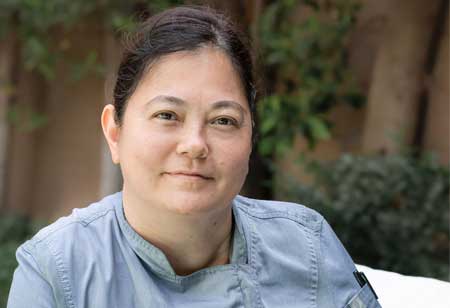

Thank you for Subscribing to Food Business Review Weekly Brief

In this post-Covid world of fluctuating labor, reluctant diners, and digital competition, restaurants are in a tougher position than ever. With Executive Chef salaries in the 6-figure range, finding the right Culinary Consultant can be a great way of spending incrementally with low commitment. Ultimately, getting the most bang for your buck. The challenge is finding the right person to fit your needs. As someone who has worked both sides of the line, both hiring consultants and being one, I've gathered a list of 5 traits to be on the lookout for to find the best Culinary Consultant for the job.
Helps You Define Your Needs Defining your needs may seem like a task already completed by the time you are looking for a consultant. You'd be surprised, however, at how much the right person can help you see opportunities you may not have thought of. A good consultant will be able to assess both the work you bring to them, as well as identify possible trouble spots or gaps in your plan. This is not a sales gimmick. Most consultants work off of word of mouth and are personally invested in the jobs they take. When consulting, my client's success is my success, and often equals future work. I know that my recommendations can make a significant difference in achieving results. So, if a consultant suggests something, it is often because they are drawing on their extensive experience to provide the insights that matter most. These insights are essential because they can help you identify your needs more accurately. Digging below the surface is a sign of a strong consultant. Valuable Accessible Expertise When looking for a consultant, you want someone who can showcase their expertise quickly. While they may not be able to share specific client information, they should have plenty of firsthand examples of their successful work and approach. The best part? You can get high quality assistance for a fraction of the cost. An expert that would otherwise be inaccessible. This is particularly beneficial for smaller restaurants or start-ups who need the expertise but can't afford the high price tag of a full-time staffer just yet. A good consultant can do the heavy legwork, allowing you to build a team with lesser skills. For example, using a consultant to develop your recipes allows you to hire cooks that can simply focus on execution. The payoff is a short term expense with long term benefits. On the flip side, as someone who has run a large restaurant group, I know how important it is to have the right people in place to help you grow and succeed. One option to consider is hiring a consultant to help with specific projects or identify what you need in a full-time position. I've found that working with consultants in the past has given me valuable insights and allowed me to analyze results to make informed decisions when it comes to finding the right person to hire full time. It can be a great way to "try before you buy" and ensure you are making the best decision for your business. Attention To Detail It's no secret that there are many people who proclaim themselves as consultants or coaches. However, what distinguishes exceptional consultants from the average ones is their unwavering attention to detail. This trait is critical in a business where every thought turns into an action item. The ability to turn ideas into plans, actions, and measured results takes an incredibly detailed and consistently organized person. I always look for clues in the way they communicate and pass on information from the beginning. Remember to prioritize both attention to detail and flexibility to changing plans when choosing. Their ability to handle the curveballs and make necessary adjustments is a sign of confidence and a detail-minded thought process. A Good Listener Listening is such an important skill when it comes to being a consultant. It allows someone to truly understand your needs and concerns, and to tailor advice and recommendations accordingly. Plus, consultants are in the business of relationships. When you feel heard and understood, you will be more likely to trust and value their expertise. A great consultant will always spend more time, in the beginning, listening instead of talking. They will ask a lot of questions to gauge not just your initial needs, but those that are underlying as well.A good consultant will be able to assess both the work you bring to them, as well as identify possible trouble spots or gaps in your plan